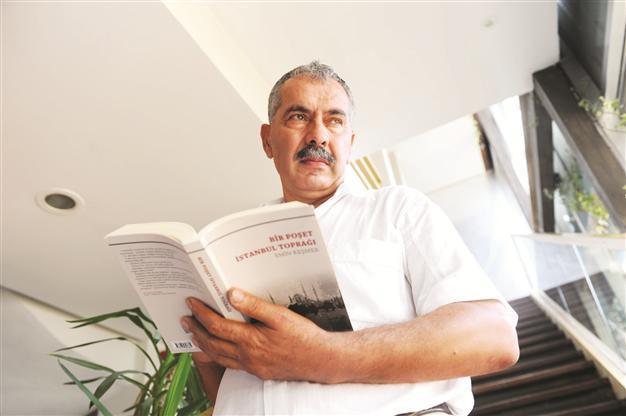Tutor tells of minority schools
ISTANBUL - Hürriyet Daily News

DAILY NEWS photo, Emrah GÜREL
Emin Keşmer, who taught Turkish language and worked as a vice principal at Armenian and Greek minority schools for fifteen years, explains the difficulties and “otherization” faced at minority schools in his book, “Bir Poşet İstanbul Toprağı” (A bag of Istanbul soil).Keşmer wrote the book after retiring and it has recently been published by the Siyah-Beyaz Publishing House. Speaking to the Hürriyet Daily News about the book, he said he had started working as a teacher in 1972, and that the years when he taught at minority schools between 1991 and 2006, became a turning point for him. Keşmer said he had had some prejudices against the Armenian and Greek communities before getting to know them, when he taught the Turkish language at the historical Dadyan Armenian School in Bakırköy between 1991 and 1998 and was appointed to Fener Greek School in Balat, also known as the “Kırmızı Mektep” (Red School) as a vice principal. He continued his job at the latter until he retired in 2006.
“During the first days I taught at Dadyan, a colleague of mine, teaching Turkish language and literature, told me he was disturbed by the children’s speaking Armenian with each other. At that moment, I really understood what kind of duty my job required,” Keşmer said.
“It seems as if there is no monitoring mechanism. But in fact, there is intensive monitoring and no confidence is felt toward ‘others.’ For example, if Turkey wins a national match, the children are monitored [to see] if they are happy or not about the result. I observed that the children were hurt and afraid, above all,” Keşmer said.
According to Keşmer, a different period started in his professional life after he was appointed to the Fener Greek High School as a Turkish vice principal. “I have never been the trumpet of the state, so my colleagues filed several complaint petitions against me to the national Education Ministry, as I did not fulfill my ‘monitoring’ duties,” he said.
National anthem monitored
According to Keşmer, people always approached Greek schools with curiosity and regarded them as “other.” “For example, whether national holidays were celebrated with enthusiasm at the Greek school was examined. Also, how they sang the Turkish national anthem was monitored. There were only 52 students, after all. How could they sound [enthusiastic] even if they shouted?”
Along with Greek and Armenian principals, Turkish vice principals are appointed to minority schools for supervision reasons. “Appointing Turkish vice principals must stop,” Keşmer said. “The citizen and the state must reciprocally trust each other; there is no need for paranoia.” “Many people migrating from this land take a piece of soil from their birthplace to be put on their graves after their death. So [with the book’s name], I would like to emphasize both these experiences and homesickness,” Keşmer said. k HDN
















